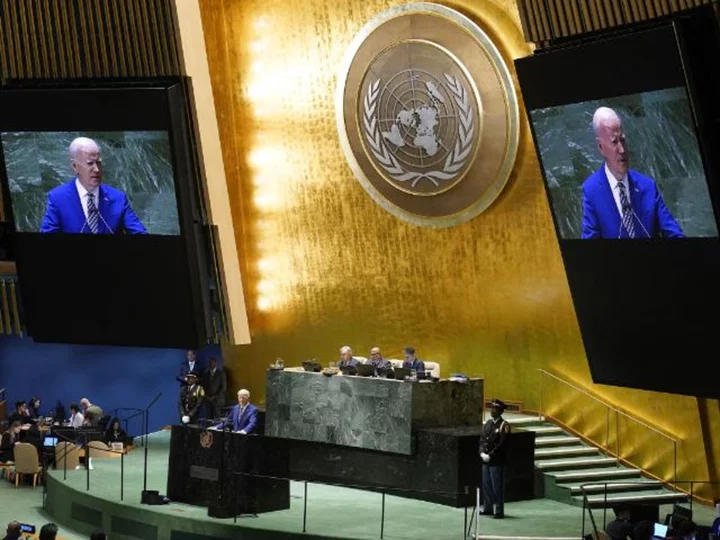The United States is seeking dialogue with both Russia and China on nuclear arms without preconditions, National Security Adviser Jake Sullivan said in a speech laying out the US approach to decreasing the risk of a nuclear conflict.
Sullivan also said that the US is simultaneously working to modernize its nuclear force but not to increase its size.
Friday's speech came as the architecture of nuclear arms control is facing serious threats, with Sullivan warning the world faces an "inflection point" on nuclear stability. China is expanding its nuclear arsenal and the US estimates it could have 1,500 nuclear warheads by 2035 if they continue to expand their stockpile at the current pace. And Russia suspended its participation in the New START Treaty earlier this year, the last nuclear arms control agreement between the world's two largest nuclear arsenals.
"We're entering a new era, one that demands new strategies and solutions to achieve the goals we've always had: prevent an arms race, reduce the risk of misperception and escalation and most importantly, ensure the safety and security of our people and people around the world from nuclear threats," Sullivan said on Friday at the Arms Control Association.
Even as China is growing its nuclear arsenal, Sullivan said the US does not need to engage in an arms race with Beijing.
"The United States does not need to increase our nuclear forces to outnumber the combined total of our competitors in order to successfully deter them," Sullivan said, adding that the US will stick to the nuclear warhead limits that the US and Russia have agreed to "as long as Russia does"
However, Sullivan did not count out the possibility of that assessment changing.
"We believe in the current context, we have the number and type of capabilities today that we need. I can't speak to every context and contingency way out into the future. But as things stand today we believe that we have what we need," Sullivan said.
The New START Treaty, which the US has said Russia is not complying with and has suspended its participation, is set to expire in February 2026. And while Russia has recently engaged in nuclear saber-rattling as it continues its war in Ukraine, Sullivan said that even during times of conflict historically the US and Russia have engaged on nuclear arms control discussions.
But Sullivan said Friday that China's opaque nuclear build up will shape what any future agreement with Russia on nuclear arms would look like.
"The type of limits the United States can agree to after the Treaty expires will of course, be impacted by the size and scale of China's nuclear buildup," Sullivan said.
He spoke of the US efforts to modernize its nuclear forces, noting that "these modernization efforts will ensure our deterrence capabilities remain secure and strong as we head into the 2030s when the United States will need to deter two near-peer nuclear powers for the first time in its history."
He explained that updating the US deterrence plans hinges on current effort to modernize "each part" of the US nuclear triad as well as investing in nonnuclear capabilities such as cyberspace and space tools that give the US an "advantage across every domain."
The US is also seeking engagement across the board -- with both allies and adversaries -- to prevent nuclear conflict. While there are current agreements in place with the five nuclear weapon states -- the US, Russia, China, the UK and France who are collectively known as the P5 -- Sullivan called those agreements "limited" saying "we can do more."
"The P5 provides an opportunity to manage Nuclear Risk and arms race pressures through a mix of dialogue, transparency, and agreements," Sullivan said, adding that the US will work to set new norms and values in the new nuclear era.
When it comes to China, so far the country has resisted regular diplomatic engagement with the US broadly, including engagement on arms control. Sullivan said it would be a "responsible" move and a "bold decision" for China to come to the table.
"It's our hope that among the topics on the table for diplomatic discussion, Beijing will be willing to include substantive engagement on strategic nuclear issues, which would benefit the security of both of our countries and the security of the entire world," Sullivan said.









